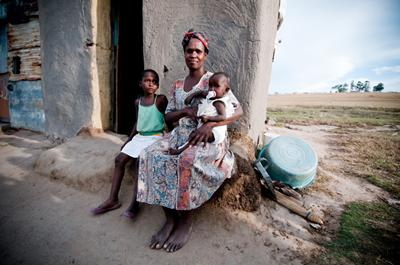Exclusive Breastfeeding and Cognition, Executive Function, and Behavioural Disorders in Primary School-Aged Children in Rural South Africa: A Cohort Analysis

Exclusive breastfeeding (EBF) is associated with early child health; its longer-term benefits for child development remain inconclusive. We examine the associations between EBF, HIV exposure, and other maternal/child factors and the cognitive and emotional-behavioural development of children aged 7–11 y.
Results from a study published in PLoS Medicine further strengthen scientific understanding of the links between what a child experiences in the first years of life and later childhood behaviour and abilities. Funded by the Government of Canada through Grand Challenges Canada, the study was led by Dr. Ruth M. Bland at the Africa Centre for Population Health in rural KwaZulu-Natal, South Africa, with Prof Newell as co-investigator. Over 1,500 children, 900 of whom had been involved in an early infant feeding study, were followed at ages 7 to 11 year with assessment of their development. Children exclusively breastfed for the recommended six months, compared with those exclusively breastfed for less than one month, were approximately half (56 percent) as likely to have conduct disorders at primary school age. Children who attended crèche for at least one year were 74 percent more likely to have higher executive function (which enables us to plan, focus attention, remember instructions, and juggle multiple tasks successfully), and children stimulated at home, such as through play, were one-third (36 percent) more likely to have higher executive function scores. The study also found that children were two-and-a-half times more likely to exhibit
emotional-behavioural problems if their mothers had a current mental health problem or severe parenting stress. The study, one of the first to assess the impact of HIV exposure on the development of primary school-age children in Africa, provides evidence that HIV-negative children born to HIV-positive mothers performed as well as those born to HIV-negative mothers.